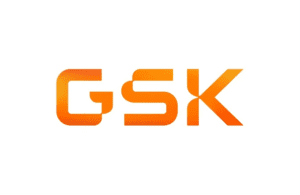 GSK (LSE/NYSE:GSK) has won validation of the marketing authorization application from the European Medicines Agency (EMA) for its respiratory syncytial virus (RSV) vaccine candidate. GSK is pursuing authorization to use the vaccine annually in older adults.
GSK (LSE/NYSE:GSK) has won validation of the marketing authorization application from the European Medicines Agency (EMA) for its respiratory syncytial virus (RSV) vaccine candidate. GSK is pursuing authorization to use the vaccine annually in older adults.
European regulators will likely announce a final regulatory decision in the third quarter of 2023.
The vaccine candidate would be the first vaccine to protect adults 60 and older from the respiratory syncytial virus.
GSK submitted positive data from an interim analysis of the pivotal AReSVi-006 (Adult Respiratory Syncytial Virus) Phase 3 study. The trial indicated that the vaccine efficacy had high overall efficacy against RSV LRTD in adults 60 and older.
In the study, the RSVPreF3 vaccine candidate demonstrated statistically significant and clinically meaningful efficacy in the target demographic.
The study involved about 25,000 participants from 17 countries.
The experimental vaccine showed efficacy for both RSV A and B strains in clinical trial participants aged 70 and older.
The vaccine candidate appeared to be well tolerated in the study, with injection site pain, pain, fatigue, myalgia and headache being the most common side effects.
GSK is also pursuing commercialization for the vaccine candidate in Japan. Japan’s regulatory authorities accepted the vaccine submission in October 2022.
The company released data from its Phase 3 study in June 2022.
Several other companies are also working to develop RSV vaccines, including Moderna (Nasdaq:MRNA), which won Fast Track designation for its RSV vaccine candidate in August 2021. In addition, earlier this year, the biopharma Icosavax (Nasdaq:ICVX) announced positive interim data from its Phase 1/1b clinical study of its RSV vaccine candidate.
In addition to older adults, RSV affects many children. Generally, U.S. 75,000 to 125,000 children are hospitalized as a result of RSV infections each year, according to the National Institute of Allergy and Infectious Diseases.
While RSV is a common cause of respiratory tract infections, infections stemming from the virus have declined in Europe during the pandemic.
RSV circulation has also decelerated in the southern hemisphere in recent years.